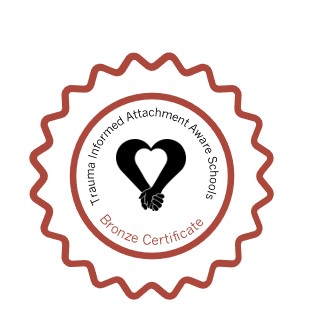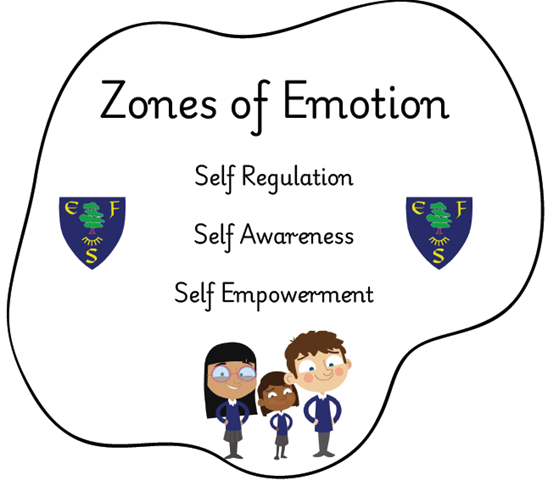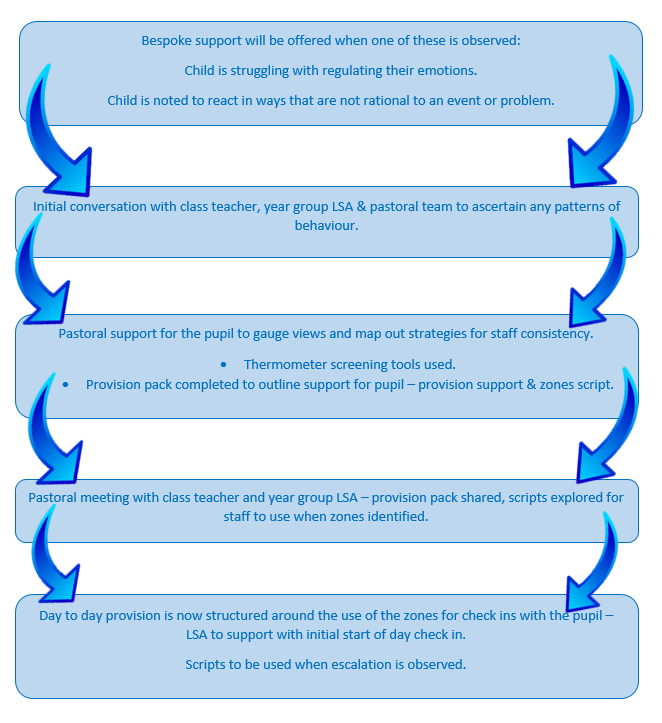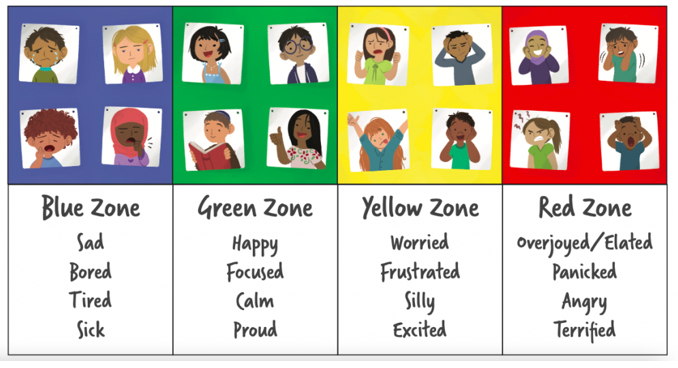Pastoral Support

Meet the Team:
Pastoral Lead Manager: C Jeffs
Learning Mentor: D O'Neill
Learning Mentor: H Bano
At Elms Farm Primary School, our pastoral team is dedicated to creating a safe, nurturing and inclusive environment where every child feels valued and supported. We believe that emotional well-being is the foundation for successful learning and personal growth.
Through strong relationships, open communication and tailored support, we aim to empower every pupil to thrive academically, socially and emotionally.
Our vision is to work in partnership with children, families and the wider community to ensure that every child develops resilience, confidence and a lifelong love of learning.
Support for Children at Elms Farm
Here at Elms Farm we support children by using strands of the TIAAS (Trauma Informed Attachment Aware School) framework. The TIAAS framework emphasises creating safe, supportive environments that recognise the impact of trauma on learning and behaviour. Elms Farm uses this approach, so safety, trust, and empowerment are at the forefront of our ethos, by fostering predictable routines and positive relationships; staff are trained to respond with empathy rather than punishment, focusing on de-escalation and emotional support.
Interventions include social-emotional learning, restorative practices, and individualised strategies that build resilience. Collaboration with families and wider professionals ensures holistic care. By shifting from “What’s wrong with you?” to “What happened to you?”, Elms Farm promotes healing, inclusion, and equity, enabling students to thrive academically and socially despite adversity.
Links to further information around TIAAS and school support.
Trauma Informed Attachment Aware Schools (TIAAS) | Birmingham Education Support Services

Zones of Emotion – The Elms Farm Approach

At Elms Farm Primary School, we recognise the importance of promoting positive mental health and emotional wellbeing to our students and their families. We aim to create an open culture around the discussion of mental health and wellbeing and to empower our children to be able to regulate their emotions.
By implementing the Zones of Emotions curriculum, through our own bespoke ‘Zones of Emotion’ display and ethos, we aim to teach our pupils to identify emotions in themselves and others and provide them with a bank of strategies to help regulate their emotions and improve their wellbeing.
The Zones of Emotions is a range of activities to help your child develop skills in the area of self-regulation. Self-regulation can go by many names, such as self-control, self-management and impulse control. It is defined as the best state of alertness of both the body and emotions for the specific situation. For example, when your child plays in a basketball game, it is beneficial to have a higher state of alertness. However, that same state would not be appropriate in the library.
The Zones of Emotions is a curriculum based around the use of four colours to help children self-identify how they’re feeling and categorise it based on colour. The curriculum also helps children better understand their emotions, sensory needs and thinking patterns. The children learn different strategies to cope and manage their emotions based on which colour zone they’re in. Additionally, the Zones of Emotions helps children to recognise their own triggers, learn to read facial expressions, develop problem-solving skills, and become more attuned to how their actions affect other people.
There is progression across the curriculum with children in Early Years learning to identify different emotions to children in Upper Key Stage 2 discussing how our behaviour can impact upon the feelings of those around us.
Pupil Specific Support:
As an extension to the whole school approach with the Zones of Regulation, we also facilitate pupil-specific support for those children identified needing additional support with their emotional regulation.
Flowchart of bespoke Zones of Regulation support:

By following this flow chart of support, the Elms Farm aim is to ensure all children are supported holistically and consistently with their regulation of emotions and reactions.
The Zones of Emotions focusses on four colours of 'Zones' blue, green, yellow and red.

Blue Zone – used to describe low states of alertness and down feelings such as when one feels sad, tired, sick, or bored.
Green Zone – used to describe a calm state of alertness. A pupil may be described as happy, focused, content or ready to learn when in the Green Zone. This is the zone where optimal learning occurs.
Yellow Zone – also used to describe a heightened state of alertness and elevated emotions; however, individuals have more control when they are in the Yellow Zone. A pupil may be experiencing stress, frustration, anxiety, excitement, silliness, the wiggles, or nervousness when in the Yellow Zone.
Red Zone – used to describe extremely heightened states of alertness and intense emotions. A pupil may be elated, euphoric, or experiencing anger, rage, explosive behaviour, devastation, or terror when in the Red Zone.
If you would like any more information on these zones and how you can support your children with regulating their emotions at home, please contact Mrs Johnson (SENCO) or the pastoral team.
